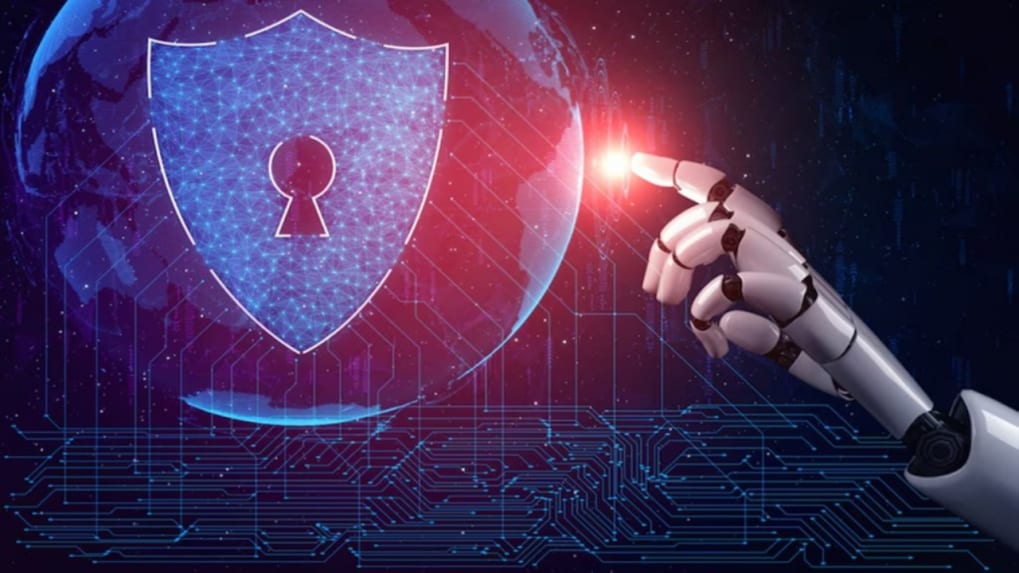Today in AI | ChatGPT clicks on 'not a bot' | ChatGPT gets 'study mode' | Google expands AI mode
Storyboard18 brings you the top AI news of the day.
ADVERTISEMENT
The world of Artificial Intelligence has only begun to affect human lives. In times like these, staying up-to-date with the AI world is of utmost importance. Storyboard18 brings you the top AI news of the day.
OpenAI’s ChatGPT agent clicks through 'CAPTCHA Test' designed to block bots
OpenAI’s newly developed ChatGPT Agent has demonstrated just how far autonomous AI has come—by doing the one thing it’s not supposed to be able to do: pass a CAPTCHA test meant to stop bots.
In a recent demonstration, the AI agent successfully navigated Cloudflare’s “I am not a robot” verification, a ubiquitous challenge designed specifically to block automated programs from accessing websites. According to a report by Ars Technica, the AI agent even appeared to understand the purpose of the task, remarking: “This step is necessary to prove I’m not a bot.”
The moment highlights the growing sophistication of AI agents in handling multistep digital tasks and mimicking human-like behavior online. While impressive, it also raises fresh concerns about how these agents might bypass traditional security checkpoints that form the backbone of anti-bot infrastructure on the web.
ChatGPT gets "Study Mode" to tutor students with Socratic prompts
OpenAI has introduced a new Study mode within ChatGPT, a feature designed to help students move past quick answers and foster a deeper, more meaningful understanding of academic topics. The new mode transforms ChatGPT into an interactive learning assistant, offering step-by-step explanations, guiding questions, and personalized feedback.
Now available to all users across Free, Plus, Pro, and Team plans, with future integration planned for ChatGPT Edu, the feature aims to make learning more engaging and effective.
Instead of providing a direct answer, Study mode utilizes a Socratic approach, posing questions to guide students through complex material. This method, which includes scaffolded responses and periodic knowledge checks, helps users break down difficult concepts and build stronger connections between topics. According to OpenAI, this structured approach reduces cognitive overload and encourages critical thinking and active participation.
Why OpenAI CEO Sam Altman thinks his son may not need to go to college
OpenAI CEO Sam Altman, one of the key figures behind ChatGPT and the current wave of artificial intelligence, believes his child may not attend college in the future. The reason? He predicts that the education system itself is on the brink of a major transformation—driven largely by the very AI technologies he's helping build.
In a recent appearance on the podcast “This Past Weekend” hosted by comedian Theo Von, Altman shared his perspective on how AI will reshape education and society. He said that learning and schooling “will feel very different” within a few years, especially for children growing up in a world where AI is embedded in everyday life. According to him, future generations “won’t know a world without AI.”
In a more sobering prediction, Altman noted that the world is rapidly moving toward a point where AI will always be smarter than humans, and products and services will be consistently superior to what individuals can create or offer on their own.
He also voiced concern about the effects of short-form video content, saying the constant “dopamine hit” it delivers could negatively impact children’s development. Yet, his bigger worry lies with older generations, who may struggle to adapt to the pace of technological change.
Google expands AI mode with ‘Canvas’, real-time visual search and smarter file integration
Google is significantly expanding the capabilities of AI Mode, its experimental generative AI layer within Search, with new tools designed to help users organise complex information and interact with Search more naturally and visually.
Among the highlights is Canvas, a side panel feature that lets users create dynamic study guides and build structured plans across multiple sessions. Whether you're preparing for an exam or researching a topic in depth, you can now click “Create Canvas” to start organising your materials. The AI helps build the structure, which you can customise further with follow-up prompts, reported TechCrunch.
Soon, users will also be able to upload files—like class notes or a syllabus—directly into Canvas to fine-tune their guides. The feature is expected to roll out in the coming weeks for users in the U.S. who are part of the AI Mode Labs experiment.
OpenAI CEO Sam Altman says GPT-5 makes him feel ‘useless’
OpenAI is gearing up for another leap in the generative AI race with the anticipated launch of GPT-5—a model already creating buzz for its remarkable capabilities. As testing picks up pace and benchmark results pour in, OpenAI CEO Sam Altman has made a startling admission: his own creation made him feel useless.
Speaking on comedian Theo Von’s podcast “This Past Weekend,” Altman recounted a recent moment that drove the point home. When faced with a complex question in an email, he turned to GPT-5 for help. The response from the AI was so precise and effective that it shook him.
“I felt useless relative to the AI in this thing that I felt I should have been able to do, and I couldn’t, and it was really hard. But the AI just did it like that. It was a weird feeling,” Altman said during the interview.
A Glimpse Into GPT-5’s Capabilities Altman’s comment may sound like pre-launch hype—but industry watchers believe it’s more than just PR. GPT-5 is already being tested on benchmark platforms, and early indicators suggest that it could mark a significant advance over previous iterations.

